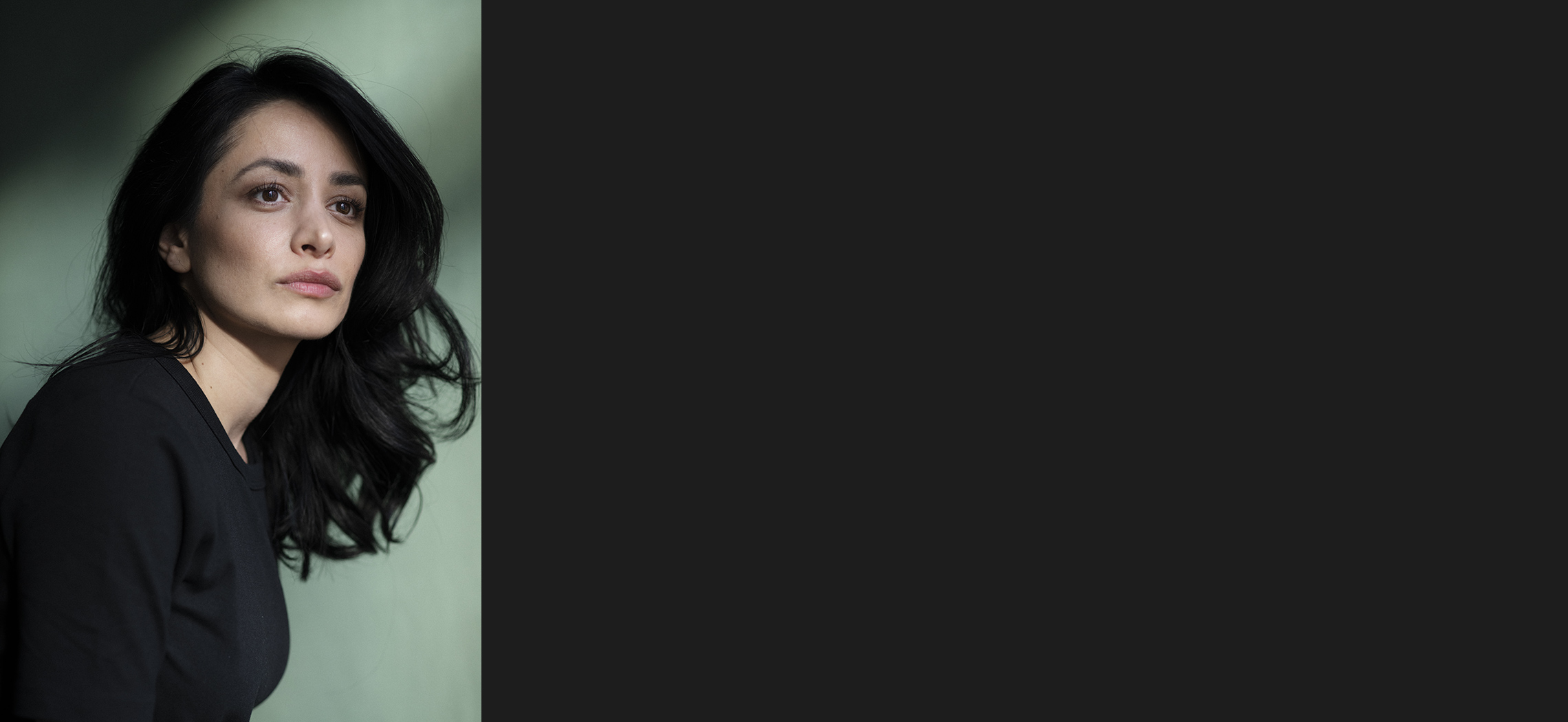A Portrait of director Milena Aboyan
Milena Aboyan © Linda Rosa SaalSometimes, you could easily forget that Milena Aboyan is still at the very beginning of her career as a filmmaker. Since her feature film ELAHA celebrated its world premiere in the now discontinued Perspektive Deutsches Kino section of the Berlinale in February 2023, the Armenian-born, Hamburg-based director has had no choice – she has needed to become a professional rapidly because she and her film have received so much attention. But the story about a young German-Kurdish woman facing the fact that women are supposed to enter marriage as virgins in her culture was actually Aboyan’s graduation film at Baden-Württemberg Film Academy.
“I always hoped that as many people as possible would see the film, especially young people who might not be particularly interested in cinema,” Aboyan recalls from the beginning of her first feature film project. “It was important to me for this significant issue to get the broadest possible reach. But while I was working on ELAHA, I didn’t really have time to think about what was going to happen afterwards. There was too little time and too much pressure.” The fact that ultimately, the film and its lead actress Bayan Layla received a host of awards such as the New Faces Award, the First Steps Award, the Bavarian Film Prize, and a nomination for the German Film Award came as quite a surprise to the director: “I still can‘t really believe everything that has happened over the past year. But of course, I’m delighted that the film has garnered so much visibility as a result.”
Instead of sitting back and enjoying her surprise success, waiting to see what offers landed on her desk, Aboyan refuses to take a break. “I realised during my studies that it can take up to three or four years to get a film funded. And up-and-coming filmmakers don’t get anything for free, you know: applying for funding, you just end up in the same pot as established filmmakers,” she says, explaining why she is motivated to push ahead with as many projects as possible at the same time.
“So, resting on my laurels was never an option. Filmmaking is my work now – and I need to be consistent about it!” So, the director’s next projects are already well-advanced: VOR DEM ANFANG, an episodic film directed with ELAHA co-writer Constantin Hatz, is being edited at the time of our interview, while the novel adaptation DREI KAMERADINNEN will ideally still get shot in 2024 and become her actual debut film. There was still time to produce a 90-minute work about the loneliness of young people for TATORT, as well. Bayan Layla, for whom ELAHA was a first leading cinema role, has acted in all these projects.
Ultimately, though, it is not so much the industry’s constraints, the diligence of a child from a working-class family, or the pleasure of working with tried and tested colleagues that inspires Aboyan. Far more decisive is a desire to bring her own material to the screen; material that is far-removed from much of what we have become accustomed to in German cinema. “I want to bring existential realities to the screen that have been rather underrepresented in the past,” she says, describing the focus of her work. “But it’s not about calculation – it’s because these are issues that concern me personally and characterise our social debates. I grew up with so many people who were never able to realise their talents due to class prejudice or economic disadvantages. All I want to do is counteract that.”
More than anything else, the 32-year-old believes without reservation in the power of cinema. “Sitting together in a cinema and watching a story unfold brings people together, no matter how different their socialisation. It sounds like pathos, but I am truly convinced that movies can change our perspectives,” says Aboyan, whose first visit to the cinema was to Spielberg’s WAR OF THE WORLDS as a teenager – thanks to free tickets won in a school raffle. And to say goodbye, she adds a very personal moment of screen magic: “Seeing HEAD ON by Fatih Akin was life-changing for me. I suddenly saw stories in the cinema that seemed familiar from my own environment, directed by someone with a migrant background. This aspect of representation made me realise that this is precisely what I want to do.”
Patrick Heidmann

